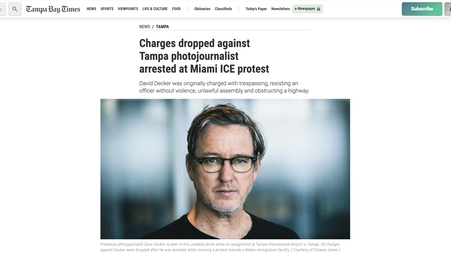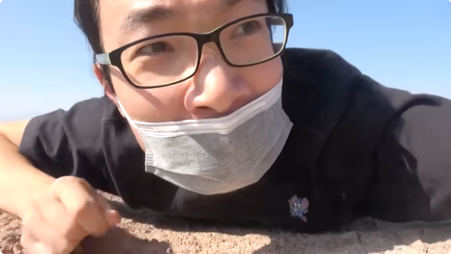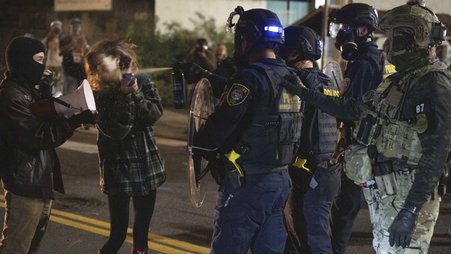
A recent DOJ investigation of the Minneapolis Police Department revealed a potentially significant change in the department's view of police orders for journalists to disperse from protests.
The Department of Justice’s investigation of the Minneapolis Police Department found so many abhorrent civil rights abuses that its discussion of press freedom violations understandably reads as an afterthought. But buried on page 52 of the DOJ’s recent report is a noteworthy and welcome reversal of its recent position on the rights of journalists covering protests.
Here’s the key language:
“The First Amendment requires that any restrictions on when, where, and how reporters gather information ‘leave open ample alternative channels’ for gathering the news. Blanket enforcement of dispersal orders and curfews against press violates this principle because they foreclose the press from reporting about what happens after the dispersal or curfew is issued, including how police enforce those orders.” (Emphasis added)
That’s the exact opposite of the Justice Department’s argument in a 2020 case arising from protests in Portland, Oregon. Back then, DOJ lawyers opposed a judge’s ruling that police could not disperse journalists covering the demonstrations unless they could show that doing so was absolutely necessary and there was no other option. The DOJ claimed that distinguishing journalists from protesters is too much to ask of police (apparently letting everyone — journalist or not — lawfully exercise their First Amendment rights was not an option). The First Amendment, the DOJ said then, does not exempt journalists from generally applicable dispersal orders, even when such orders make reporting important news impossible.
Fortunately, an appellate court disagreed and upheld journalists’ right to cover protests and their aftermath. The court explained that “excluding the media from public fora can have particularly deleterious effects on the public interest, given journalists’ role as ‘surrogates for the public.’” Freedom of the Press Foundation (FPF) joined a brief led by the Reporters Committee for Freedom of the Press defending journalists’ rights in the case.
But despite the loss in the appellate court, the DOJ, as far as we know, never rescinded its anti-press position — until now.
That’s welcome news, especially given the troubling trend of increased aggression by police against journalists covering protests, as detailed by a recent report from the Knight First Amendment Institute, citing data from FPF’s U.S. Press Freedom Tracker.
It could be particularly helpful as well for North Carolina journalists Veronica Coit and Matilda Bliss, who are appealing a conviction for trespassing because they stayed at a park past closing time to document police evicting a homeless encampment. The case against them is especially weak because there was no chaotic large-scale protest that police claimed a need to disperse, nor any credible argument that police couldn’t tell journalists from others (instead, bodycam footage shows they knowingly targeted the journalists).
The report also included condemnations of MPD assaults of journalists, and affirmations of basic First Amendment rights like the right to record police, which may seem obvious but would've been unlikely to appear in a DOJ publication a short time ago.
Of course, the DOJ’s position can and likely will change in future presidential administrations, so legislative and judicial action remains necessary to combat the nationwide police crackdown on protest coverage. And the DOJ and Biden administration are no friends of press freedom as long as they continue prosecuting Julian Assange. But, along with last year’s DOJ policy against compelling journalists to disclose their sources, the language from the Minneapolis report signifies promising trends in the department’s attitudes towards journalists. Now it’s time to make sure the DOJ sticks to its word.




